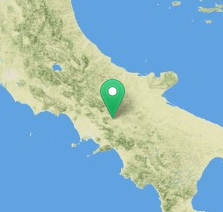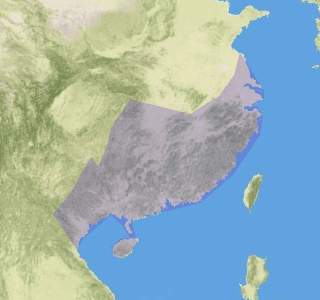PARLI is an Atlas of Romance Literature (12th-14th centuries) from a Prosopographical Perspective.
Literary entities can be intertwined with geographical, prosopographical and genealogical ones.
Moving back and forth on the timeline, it's possible to know which historical and cultural events occurred in a given period.Lists of historical personalities and characters, authors, places and human types linked to literature can be consulted in a reticular manner.
The same goes for the works and manuscripts that handed them down to us, for the personalities who populate them and for the people they speak of, for the social groups that contributed to their composition and their diffusion, for the wars of which they speak and for the armies that move in them or that have contributed to their destruction.
Thanks to an exceptional team of editors, lyric poetry, novel, epic, theater all the most important historiographical works and many other genres are analytically filed.
The initial screen provides the map with all the cultural events of the year that is at the center of the considered era. By moving the timeline bar back and forth, you can study cultural events in diachrony. They can be viewed starting from the green colored pins (cultural). By selecting the other (blue) button, in addition to having personal information on the characters, always in diachrony, the borders of the lordships of the Romance area will be identified in panchrony, which in turn lead back to the ethnonyms of each division: PARLI is therefore also a large catalog of ethnonyms. For divisions of a higher order that dominate lordships, such as the Counties and their rulers, it is necessary to select political (purple), for geographical-political divisions of an even higher order such as Duchies and Major Counties military (red), for Kingdoms and Empires, select religious (yellow). Attention: these divisions have an exclusively practical reason and are divided among the various fields of primary activity only by convention and economy. Consider that the borders clicked last are highlighted.
---------------------------------------------
The research Prosopographic Atlas of Medieval Romance Literatures (12th-13th century) was funded in Italy by the Ministry of University and Research (PRIN 2017) and coordinated at Sapienza University of Rome.
Coordination: Paolo Canettieri (Sapienza Università di Roma)
Coordinators of local units: Massimiliano Gaggero (Università di Milano), Simone Marcenaro (Università del Molise), Riccardo Viel (Università di Bari)
Platform design: Stefano Milonia (University of Warwick), Steve Ranford (University of Warwick).
PARLI uses the platform MedMus – DH-DW extension for medieval music, literature, and cultural heritage developed by Stefano Milonia, based on the system DH-DW platform Digital Humanities – Data Workbench v3.0, originally created for the historical comparison site oiko.world (by Prof. Michael Scott, Classics and Ancient History, University of Warwick).
Responsible for Lyric Poetry: Paolo Canettieri (troubadour and trouvère poetry), Simone Marcenaro (galician-portuguese poetry), Giovanna Santini (sicilian poetry), Riccardo Viel (tuscan poetry)
Responsible for Didactic and Moral Poetry: Massimiliano Gaggero
Responsible for Storiography: Massimiliano Gaggero, Gioia Paradisi
Responsible for Prose Novel: Arianna Punzi
Responsible for Verse Novel: Anatole Pierre Fuksas, Gioia Paradisi, Arianna Punzi, Giovanna Santini, Lucilla Spetia
Responsible for Theater and for Dante Alighieri's opera: Silvia De Santis
Editorial board
French Literature: Margherita Bisceglia, Julia Boitani (Sapienza Università di Roma), Silvia De Santis (Sapienza Università di Roma), Luca Gatti (Sapienza Università di Roma), Elisa Verzilli (Sapienza Università di Roma)
Occitan Literature: Francesco Saverio Annunziata (Sapienza Università di Roma), Paolo Canettieri (Sapienza Università di Roma), Mariangela Distilo (Sapienza Università di Roma), Ermes Faillace
Galician-Portuguese Literature: Déborah González (Università del Molise), Emanuele Di Meo (Sapienza Università di Roma)
Italian Literature: Chiara Mezzetti (Sapienza Università di Roma), Giulio Martire (Università di Milano), Giorgio Barachini (Università di Bari)
Historical Texts, Religious, Didactic and Moral Literature: Davide Battagliola (Università di Milano), Filippo Pilati (Università di Milano)
Historical Contents and Genealogy: Margherita Bisceglia (Sapienza Università di Roma); Elisa Verzilli (Sapienza Università di Roma); Ermes Faillace (Sapienza Università di Roma).
Geopolitical Borders: Miriam Noto
For each entry in the Atlas, it is possible to find the creator and last editor using the Search button. Furthermore, it is possible to check the Number of contents per collaborator.
PARLI has had a data exchange agreement with the Connecting Medieval Music project; for credits from related articles, you must use that site.
The annotations are initialed by the editors according to the following abbreviation:
[AS] = Alice Smith
[CM] = Chiara Mezzetti
[DB] = Davide Battagliola
[DG] = Déborah González
[EF] = Ermes Faillace
[EV] = Elisa Verzilli
[EDM] = Emanuele Di Meo
[FP] = Filippo Pilati
[FSA] = Francesco Saverio Annunziata
[GB] = Giulia Boitani
[GBa] = Giorgio Barachini
[GM] = Giulio Martire
[GS] = Giovanna Santini
[HCM] Heloisa Carimi Maciel
[KR] Karen Ramilo
[LG] = Luca Gatti
[MB] = Margherita Bisceglia
[MD] = Mariangela Distilo
[MG] = Massimiliano Gaggero
[MS] = Maria Scirano
[PC] = Paolo Canettieri
[PG] Paolo Gemmiti
[RLB] Renata Luiza Bellocci
[R] = Redazione
[RV] = Riccardo Viel
[SDS] = Silvia De Santis
[SM] = Simone Marcenaro
[SMi] = Stefano Milonia

 Events at a specific location are marked on the map using coloured markers like this on. Hover, tap or click to see more information about the event at the location.
Events at a specific location are marked on the map using coloured markers like this on. Hover, tap or click to see more information about the event at the location. When more than one event is happening in the same place, or you need to zoom in to see them they are grouped together like this. Tap or click to reveal the events that have been grouped together.
When more than one event is happening in the same place, or you need to zoom in to see them they are grouped together like this. Tap or click to reveal the events that have been grouped together. Events that are moving something are indicated with lines. If we know the direction of travel then arrows will additionally be placed on the line.
Events that are moving something are indicated with lines. If we know the direction of travel then arrows will additionally be placed on the line. If an event took place over an area, then we'll show it as a translucent area. Hover, tap or click to see more information about the event.
If an event took place over an area, then we'll show it as a translucent area. Hover, tap or click to see more information about the event. Global Empires are shown as coloured areas with stripes. Hover or tap for a tooltip with the information for the Empire.
Global Empires are shown as coloured areas with stripes. Hover or tap for a tooltip with the information for the Empire.